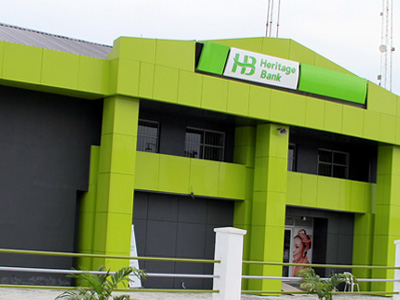
Directors of Flour Mills of Nigeria Plc, at the weekend, presented its audited financials for the year ended March 31, 2019, showing that revenue declined marginally, just as costs, while financial cost and tax expenses soared. Profit before and after tax consequently took a nose-dive, which took a toll on the Earnings Per Share, resulting in the proposal of 120 kobo dividend per share for the period, subject to approval at the next annual general meeting.
Revenue for the period fell to N527.404bn, down by N15.265bn or 2.81% from prior year’s N542.67bn, with from the sale of various goods and services accounting for N506.405bn, down from N522.573bn, while N20.999bn came from the rendering of services, compared to N20.096bn. A further breakdown of the figure showed that income from its food segment contributed the lion’s share of N335.614bn, down from N345.701bn in 2018; followed by agro allied segment (sale of Golden Penny Vegetable oil, soya oil, and margarine) with N88.1bn, down from N90.683bn. The fertilizer division again recorded nil income for the second year; sugar revenue was down from N86.188bn to N82.691bn; while support services recorded N20.999bn, slightly higher than the N20.096bn of the prior year.
Cost of sales inched slightly to N474.057bn from N473.895bn in the corresponding period of 2018, with the cost of raw and packaging materials gulping all of N407.207bn, a slight drop from N418.672bn; followed by depreciation, N19.205bn, up from N14.813bn; production employee cost, N16.125bn, as against N13.229bn; fuel,gas and oil, N14.3bn, compared to N14.156bn; factory repairs and maintenance accounted for N9.752bn from N7.0bn; followed by N5.019bn for other production expenses, up from N3.345bn.
Gross profit, therefore, decreased by N15.427bn or 22.43% to N53.347bn, compared to N68.775bn in 2018. A further breakdown showed that although most of the revenue and cost of sales came from the food segment, it could only contribute N13.724bn to gross profit, a significant drop from N49.208bn in 2018; while agro allied accounted for N19.221bn, from a mere N1.094bn; sugar followed with N15.716bn, up from N12.808bn. Gross profit from support services amounted to N4.685bn, down from N5.663bn in 2018.
Selling and distribution expenses climbed to N8.165bn from N6.18bn, representing a growth of N1.985bn or 32.13%; administrative expenses was flat at N19.424bn from N19.423bn; net operating gains increased from N5.943bn to N6.211bn. Also, write-back on trade and intercompany receivables stood at N327.296m, as against the impairment loss of N692.033m in the previous year.
This resulted in a N16.126bn or 33.3% drop in operating profit from N48.422bn to N32.296bn; investment income slipped to N768.592m from N816.319m; just as finance costs dropped by N9.806bn or 29.99% from N32.697bn to N22.891bn, ass interest on bank loans and overdrafts fell from N35.697bn to N15.145bn; while the group paid N7.745bn interest on bonds and commercial papers; while there were no fair value loss or gain on derivatives this time, compared to N3.0bn in 2018.
Profit before tax, therefore, fell to N10.174bn, up by N6.367bn or 38.49% from N16.541bn, the bulk of which however was the N22.263bn from the food business, up from N13.775bn in the prior year; and N7.407bn from the sugar business, which was double the N3.5bn it posted in the previous full-year. The agro allied segment reported a loss of N1.027bn, a significant improvement when compared to the loss of N12.522bn in 2018; while support services lost N6.21bn, one year after it posted a profit of N6.537bn. Net income tax expense for the period jumped by N3.166bn or 113.84% to N5.948bn from N2.781bn; leaving net profit at N4.0bn, down by N9.615bn or 70.62% from N13.615bn recorded at the end of March 31, 2018, representing EPS of 100 kobo, up 483 kobo per share.













